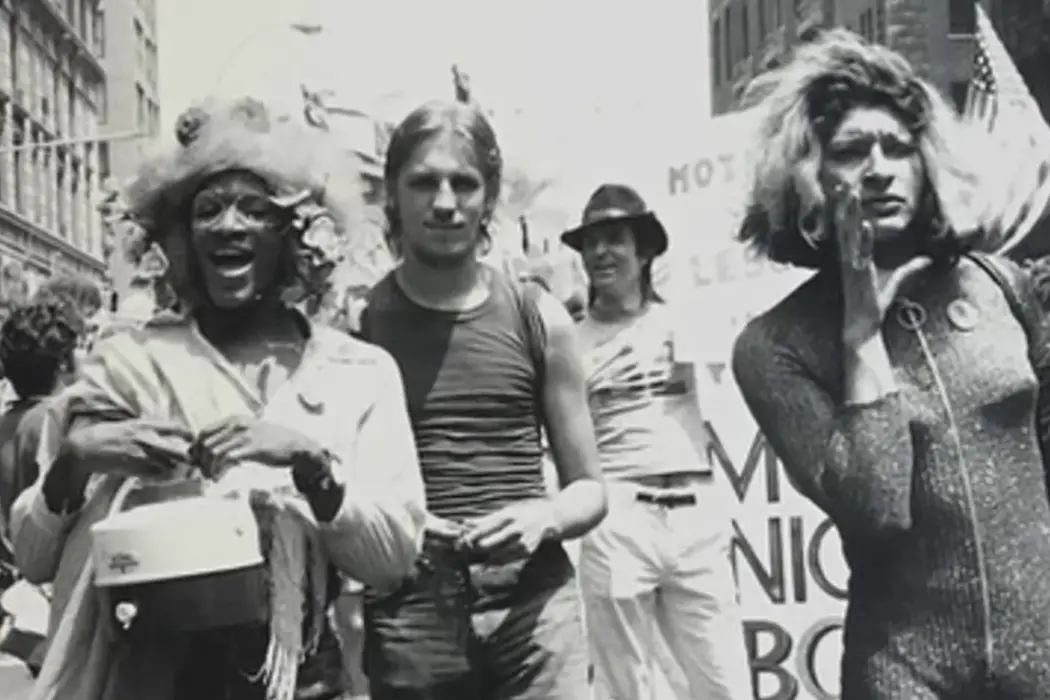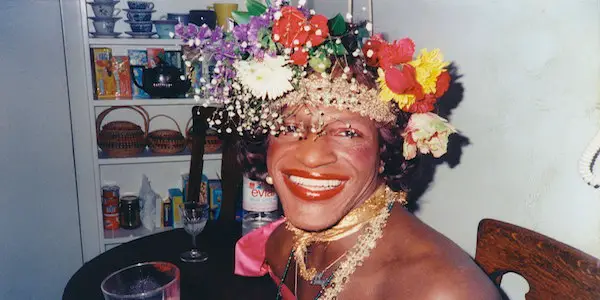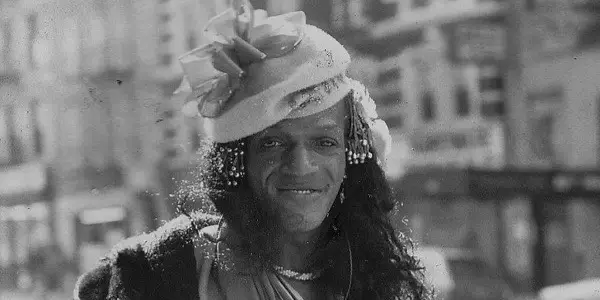THE DEATH AND LIFE OF MARSHA P. JOHNSON: A Unique, Historical Perspective On Transgender Rights

I've been an avid film fan and viewer for as…
The Death and Life of Marsha P. Johnson is a harrowing look at a series of transgender women fighting for their rights in the late 60s and 1970s, as well as off-and-on during the following twenty years. They were actively targeted by practically every type of person, particularly NY police officers. It’s both a history lesson and a cautionary tale about transgender hate crimes, artfully put together and directed by David France.
The Facts and the Evidence
As a brief recap of the main conflict in the film: in 1992, Marsha P. Johnson was found dead in New York in the Hudson River at the age of 46. Police quickly ruled it as a suicide despite friends and family disputing that notion, not believing she would commit suicide and knowing that she had been worried for her safety in the days leading up to her death.

The private investigations tie Marsha to the mob by way of her friend and roommate, Randy, who was trying to take back their local pride parade from the clutches of the mob. There are also implications of dirty cops, who were known to act violently against transvestite and transgender people.
Chasing Old Leads
The film takes archival footage of Marsha and splices it in between the current day story of an activist, Victoria Cruz of the Anti-Violence Project, who’s still fighting for and in Marsha’s name. Cruz has as much of an emotional impact on the documentary as Marsha, though the latter undoubtedly has the greater cultural impact through her activism and beloved status within the worldwide trans community.
Besides, their stories are intertwined: Cruz works tirelessly on transgender rights while trying to discover new details in Marsha’s case because she admires Marsha so much. One of the saddest aspects of the film is that the titular subject has to be a supporting character in her own movie due to her untimely death. The footage of Marsha is rare and raw, but it isn’t a whole lot, just short glimpses of her exuberant personality. The outrage and outpouring of love following her death speaks volumes of her character as a person, though.

The police didn’t have any interest in truly investigating her death, ignoring or never bothering to retrieve crucial evidence that pointed to foul play. Case files go missing, retired cops refuse to speak with Cruz. It’s a constant uphill battle for her, though she admirably trudges on, never resorting to any form of self-pity.
An Intense Leader
A major part of the documentary focuses on Sylvia Rivera, a transgender woman and a fierce and outspoken activist. Marsha says in one archival clip that she’s just the vice president of their movement and that Sylvia was the one who truly lead the pack. The two, who were very close friends, were pivotal components in the 1969 Stonewall riots, an event that many consider to have launched the gay liberation movement. They also co-founded S.T.A.R., a transvestite advocacy organization.
Sylvia had the incredible inner strength to be able to fight against the hatred that was so prevalent in the 1970s, when transgender people were absolute outcasts to the rest of the world. In some ways, she compartmentalized the trans movement and the gay movement, believing that trans people were/are victimized far more than the gay community. She doesn’t divide people, though, speaking at events with primarily gay crowds with plenty of fever and passion.
Transgender Violence Still Very Prevalent
There is a moment in the documentary where Cruz speaks with the director of a transgender defense firm. Cruz explains the newly surfaced details about the Marsha case, but the defense director feels like she can’t afford to return to the case. She tells Cruz that there are just too many crimes happening today to return to a cold case from 1992.

An obscene amount of violence is perpetrated against transgender people today, as well as a shocking amount of murders. Trans victims aren’t treated like regular people and their families suffer terribly as a result. In one such case that’s shown briefly in the film, a young transgender woman, Islan Nettles, is brutally beaten to death by 25-year-old James Dixon. Dixon is sentenced to only twelve years, a significantly lesser sentence than most murderers receive.
In Conclusion: The Death and Life of Marsha P. Johnson
The Death and Life of Marsha P. Johnson is a rewarding experience, especially for those who weren’t entirely aware of the small groups of trans activists fighting for their rights in 1970s New York. It’s a tragic story filled with heartbreaking real-life characters, but their own humor and joy helps to balance out the very grim tidings.
Of the alternative scenarios that were proposed, as opposed to suicide, what do you think caused Marsha’s life to be cut so short? The Mob? Dirty Cops? An accident? Tell us your thoughts in the comments below!
The Death and Life of Marsha P. Johnson was released on Netflix on October 6, 2017. For all international release dates, see here.
Does content like this matter to you?
Become a Member and support film journalism. Unlock access to all of Film Inquiry`s great articles. Join a community of like-minded readers who are passionate about cinema - get access to our private members Network, give back to independent filmmakers, and more.
I've been an avid film fan and viewer for as long as I can remember; I unfortunately can remember my first reviews as a teenager, yikes. I studied Electronic Media at Delta College and am now working on a major in Business/Marketing at Western Michigan University. My personal film blog: film-logs.com













